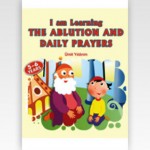ZAKAT PREVENTS MISERLINESS
The love of property has intrinsically been a part of human inclination for many concealed purposes. Overindulgence in this fondness, however, will indubitably result in a shameful dissipation. This innate inclination possessed by human, in which overexploitation leads to miserliness, is highlighted in the Qur’an: “…Human souls are prone to selfish avarice” (Nisa 4:128).
In history, miserliness has been the sole culprit in the destruction of many civilizations, as reiterated by the Messenger of God:
Beware of miserliness, as those before you were ruined because of it. Their rulers enjoined miserliness, the public acted in accordance; their rulers ordered them to sever kindred ties, the public hastened to severe; their rules commanded transgression which they immediately saw to.”4
One of the etymological derivatives of zakat is tazkiya, signifying purification. It purifies the poor of envy and hatred and conversely, purges the sinister disease of miserliness from the spirit of the rich. The acknowledgement of the rights of others in property, a notion that zakat inherently conveys, unfetters the benefactor from material obsession. Stinginess, a detrimental disorder, suffers defeat as the giver embraces the perception that what is given by God is simply to be spent in the manner, or location, desired by Him. The departure of miserliness from a person results in the arrival of an even greater fondness of God:
So keep your duty to God as best you can, and listen, and obey, and spend: that is better for your souls. And those who are saved from their own greed will surely prosper. (Taghabun 64:16)
Thoughtlessly withholding what is granted by God, then, is virtually treading on dangerous territory, as exhibited via the following Qur’anic admonition:
And let not those who hoard up that which God has bestowed upon them of His bounty think that is better for them. It is worse for them. That which they hoard will be their collar on the Day of Resurrection. God’s is the inheritance of the heaven and the earth, and God is aware of what you do. (Al Imran 3:180)
Senturk, Omer Faruk. “Charity in Islam” Tughra Books Press. January 2007.
Related Posts
- December 14, 2013
- 0 Comment









